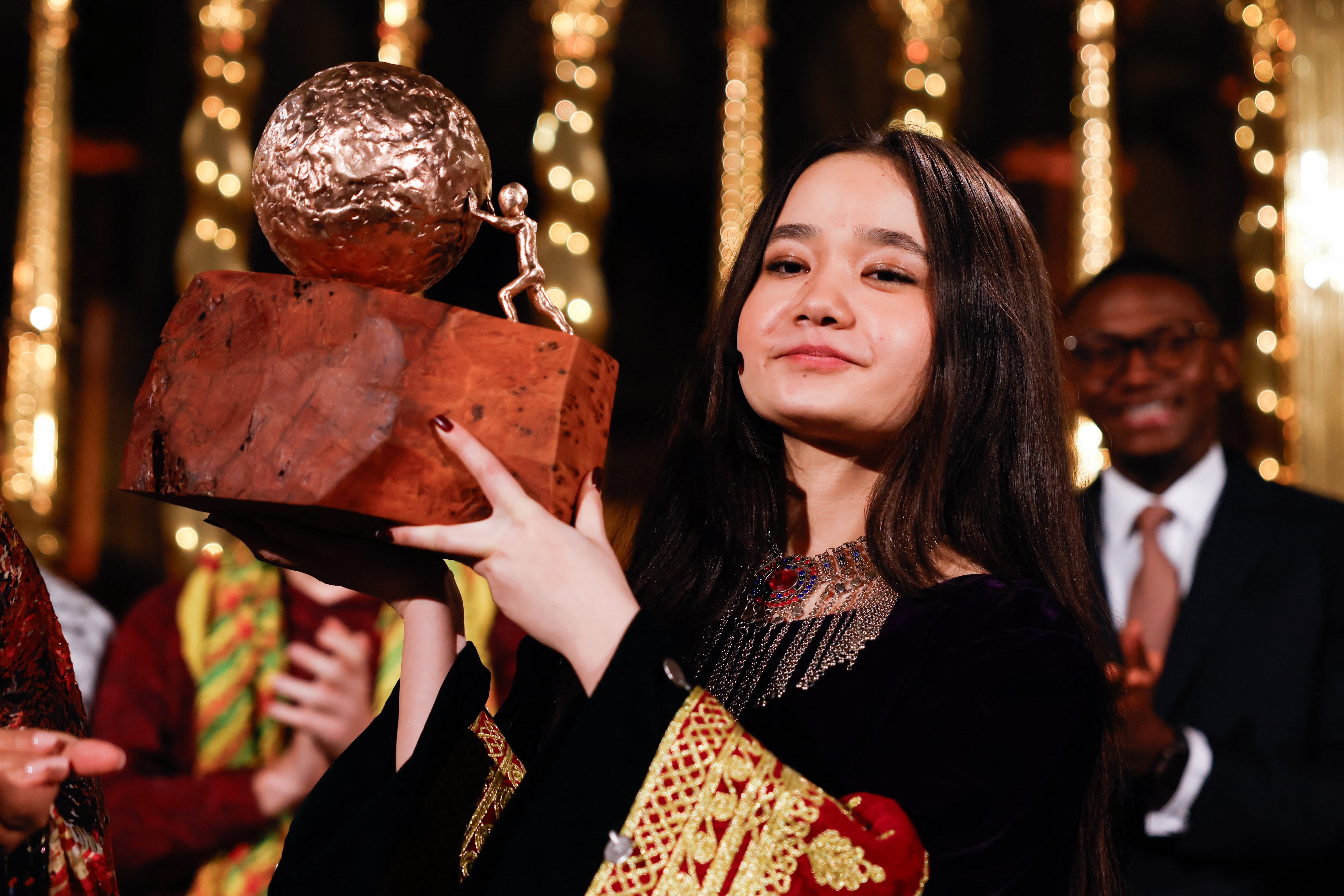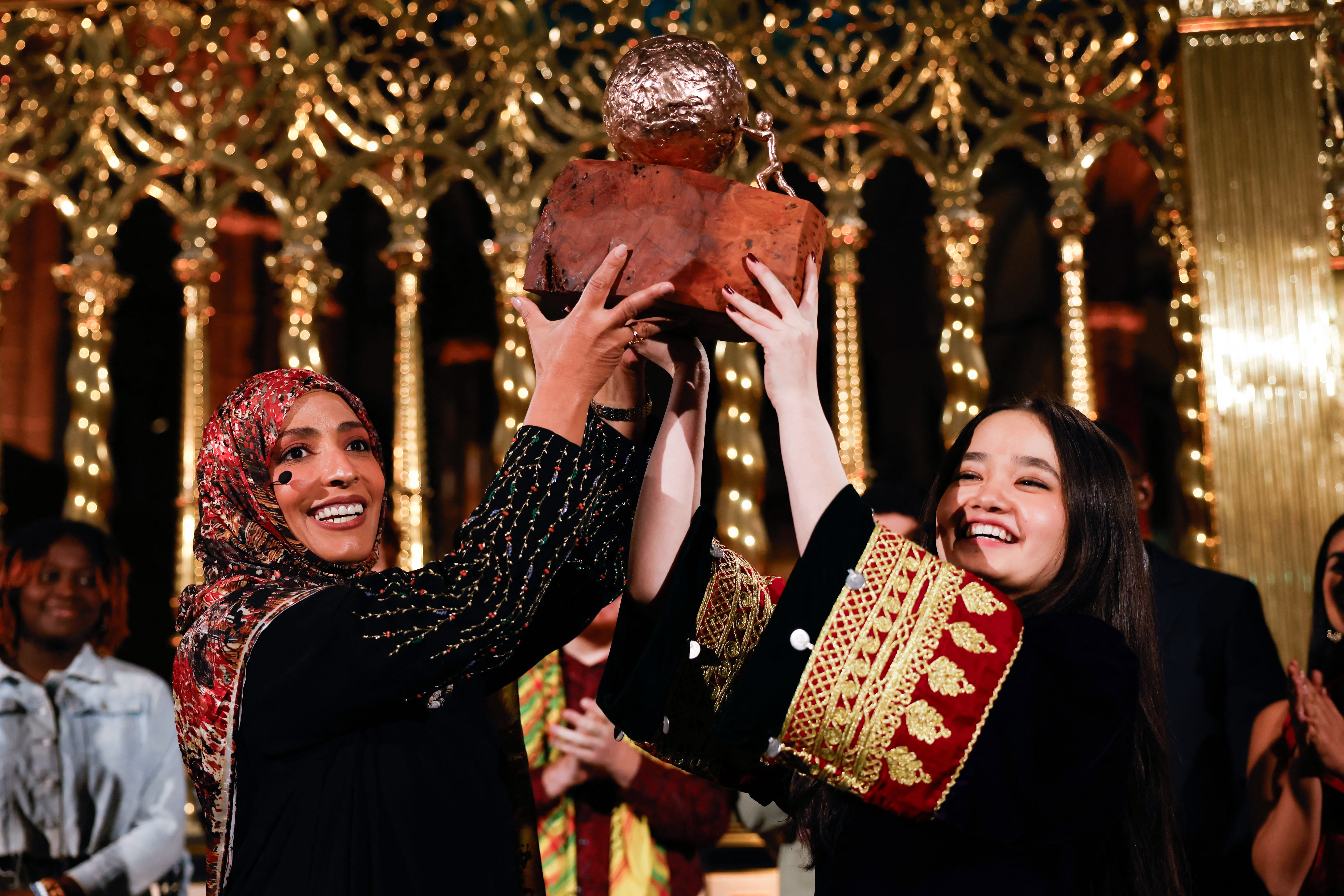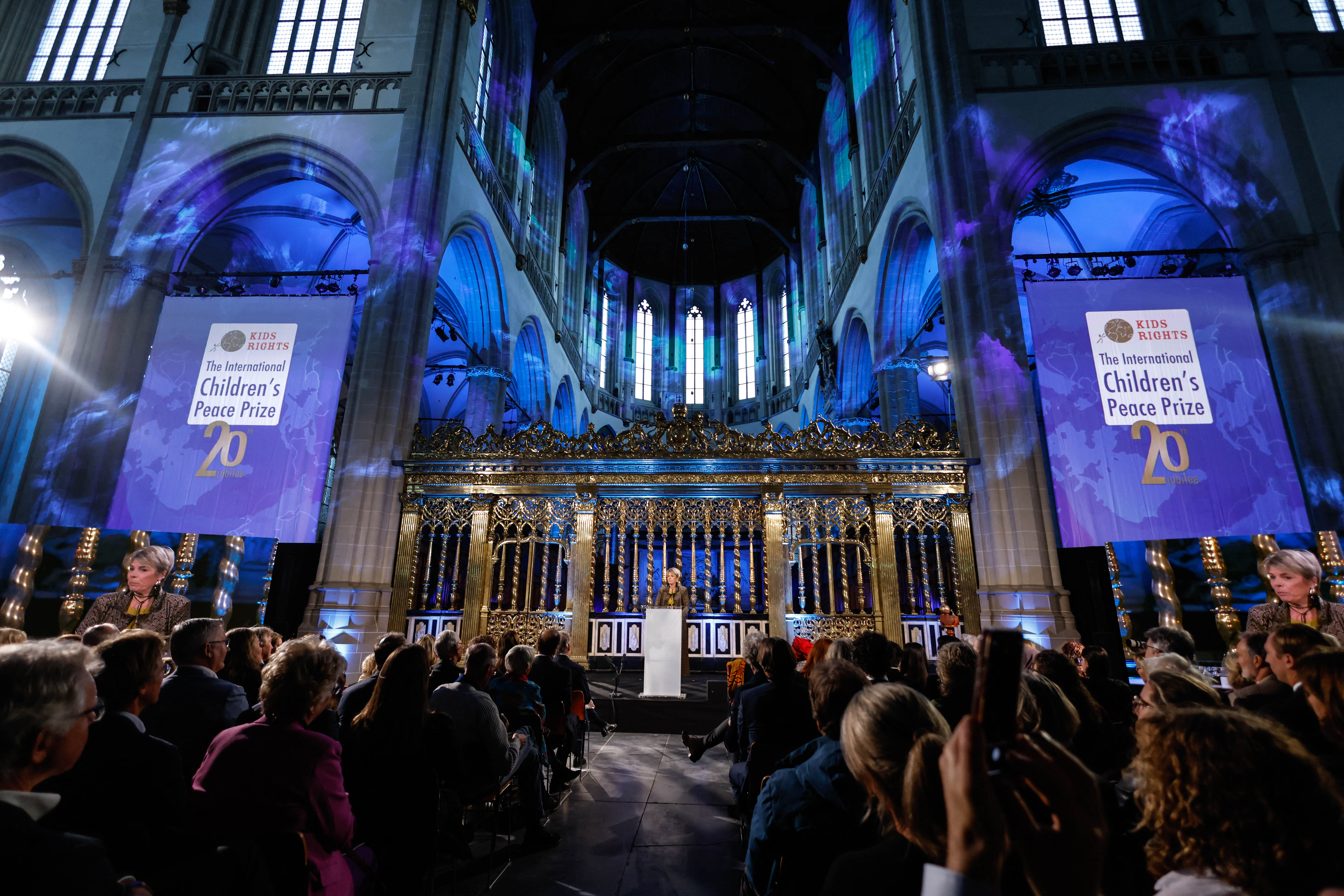‘If we suffer, the world suffers’: Singing teenager who gave Afghan women a voice wins Children’s Peace Prize
17-year-old Nila Ibrahimi has won the International Children’s Peace Prize for her work in advocating for Afghan girls
Your support helps us to tell the story
From reproductive rights to climate change to Big Tech, The Independent is on the ground when the story is developing. Whether it's investigating the financials of Elon Musk's pro-Trump PAC or producing our latest documentary, 'The A Word', which shines a light on the American women fighting for reproductive rights, we know how important it is to parse out the facts from the messaging.
At such a critical moment in US history, we need reporters on the ground. Your donation allows us to keep sending journalists to speak to both sides of the story.
The Independent is trusted by Americans across the entire political spectrum. And unlike many other quality news outlets, we choose not to lock Americans out of our reporting and analysis with paywalls. We believe quality journalism should be available to everyone, paid for by those who can afford it.
Your support makes all the difference.At first, 14-year-old Nila Ibrahimi just wanted to sing.
When her home country of Afghanistan banned girls over the age of 12 from singing in public in March 2021 – months before the Taliban takeover – Nila refused to remain silent.
In response to the controversial decision by the Kabul Education Directorate, Nila recorded a protest song which went viral as part of the #IAmMySong movement. The policy was reversed soon afterwards.
Nearly four years later, having dedicated her teenage years to fighting regressive restrictions against Afghan women and girls, Nila has won the International Children’s Peace Prize – an annual award for a child who has made a major contribution in advocating children’s rights.

“It was risky. It felt risky at the time, but maybe I didn’t grasp the whole idea of it, because I was just 13 or 14,” Nila tells The Independent of her first steps as an activist.
“If women’s rights are suffering in one part of the world, the whole world will suffer in one way or another,” Nila said in the interview days before the awards ceremony.
“This is something that is left unrecognised when we walk about girls’ education in Afghanistan, because we think of it as a problem just in Afghanistan. ‘Oh, it’s just a country over there, it’s far from our country’,” she added. “The most important message is not to forget about the girls of Afghanistan.”

With a selflessness and courage which “amazed and impressed” the judges, Nila, now 17, has worked to provide a voice for other Afghan girls through her organisation, Her Story.
She now lives in Canada, after fleeing Afghanistan with her family when the Taliban regained control of Kabul in the summer of 2021.
“[I felt] heavy emotions, to say the least. I don’t want to go very deep into it, but of course it was hard,” she recalls. Despite the incredible hardship, Nila’s commitment to fighting for Afghan girls never ceased.
The Taliban has introduced increasingly oppressive measures for women since the takeover. Women are banned from speaking, singing or reading in public – and aren’t even allowed to sing in their own homes.
Music has been at the core of much of Nila’s activism since releasing her protest song in 2021. While in a safe house in Pakistan after fleeing her homeland, Nila once again used her voice to help raise $4 million for the 30 Birds Foundation to evacuate a further 200 girls from Afghanistan.

Nila and her brother, Murtaza, founded Her Story after arriving in Canada, a platform for girls from Afghanistan to share their stories and raise their voices.
She was inspired to do so when, after speaking at the Geneva Summit and the House of Lords, Nila realised there was “not a lot of awareness” about the situation in Afghanistan.
But these experiences proved to Nila the level of interest in the stories of Afghan girls, so she decided to create a platform for them.
“The girls of Afghanistan and their resilience is my source of motivation,” Nila said. “When I think about the Afghan girls that I interview and work with, or that I hear from, they are still in Afghanistan, and with so much restriction and limitation they’re still going, they’re still holding onto that sense of hope. I think I should be the last person who thinks of giving up.”
Nila was given the 2024 International Children’s Peace Prize award, which is celebrating its 20th anniversary and has been previously won by Malala Yousafzai, Greta Thunberg and Nkosi Johnson, at a ceremony in Amsterdam.

“We were all impressed and amazed by the courage of Nila,” said Marc Dullaert, the founder and chair of the KidsRights Foundation. “She had the courage to put her song online, the courage to initiate and start the singing movement.”
“But also the resilience after fleeing with her family to Canada, that she still kept on advocating for Afghan girls, not only in Canada but also worldwide.
“She could have thought, ‘well I’m safe now and I’m focussing on my own life’, but [she had] the selflessness to really keep on advocating for Afghan girls.”
During the ceremony, Nila led a singalong of her viral protest song with a 500-strong choir in Dam Square and girls from across four continents who joined remotely.
Nila is now in the process of applying for university and hopes to study law.
Join our commenting forum
Join thought-provoking conversations, follow other Independent readers and see their replies
Comments